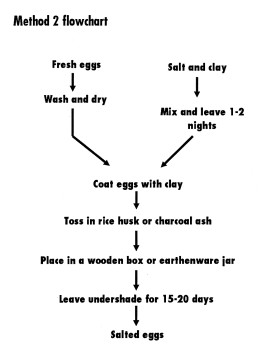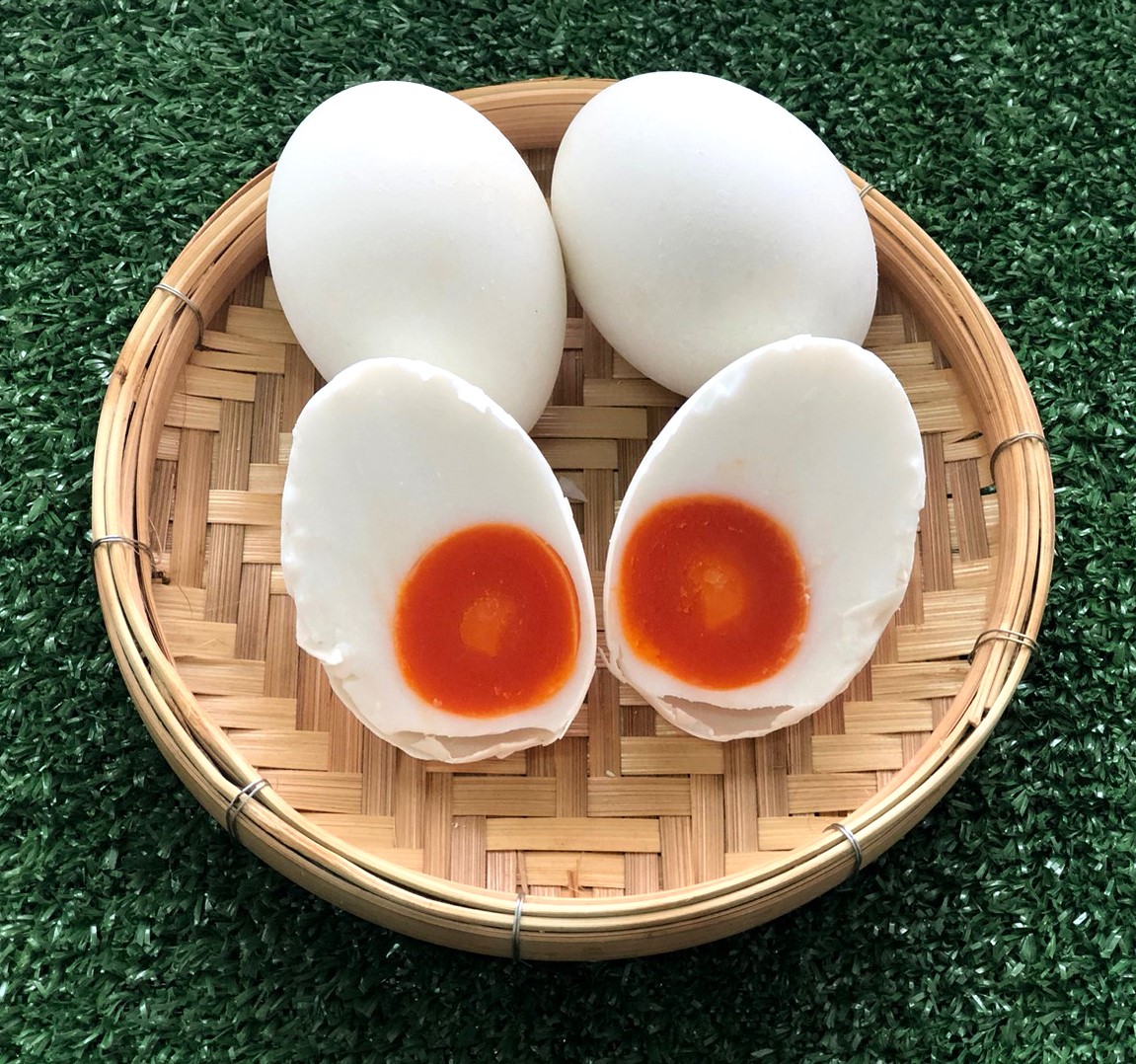Skip to main content
- Name (Thai)
-
ไข่เค็ม
- Name (English)
-
Salted eggs
- Local name
-
Khai-khem
- Product
-
Animal
- Ingredients
-
Method 1 Duck eggs. Salt, water. Method 2 Duck or chicken eggs. Salt, clay, rice husk or charcoal ash.
- Fermentation
-
Method 1
Three weeks.
Method 2
Fifteen to twenty days
- Storage life
-
1 month.
- Microorganisms
-
- Properties
-
The egg white is more or less the same as the fresh egg but the egg yolk is solid. The taste is salty and the aroma is characteristic.
- Method
-
Method 1
Wash fresh eggs and place in a clean glass jar. Dissolve 1 cup of salt in 4 cups of water and boil. Strain the solution through cheese cloth and leave to cool. Cover with brine and weigh down. Close the jar and leave under shade for 3 weeks for duck eggs and less for hen and quail eggs as they are smaller.
Method 2
1. Wash the eggs and leave to dry
2. Mix 2 cups of fine salt with 6 cups of semi-solid clay (for 20 eggs) thoroughly and leave for 2 nights to let the salt dissolve. Mix well to obtain a texture suitable for coating the eggs.
3. Coat the eggs with a layer of clay about 1/4" thick.
4. Toss the eggs in rice husk or charcoal ash to prevent them sticking to each other.
5. Place the eggs in a wooden box or earthenware jar and leave under shade for 15-20 days. Care must be taken not to let the clay dry during storage so sprinkle with occasionally.
- Consumption
-
Boil or fry and eat with rice.




